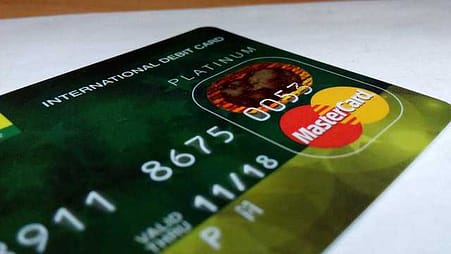Does Your Child Know What a Credit Card Is?
From the early childhood on, we try to teach our children the basic knowledge for adult life – how to keep room in order, how to eat healthily, how to communicate with people. Modern life requires that parents should start teaching kids about money. As credit cards are an important part of our everyday life children should learn about it as early as they are able to comprehend it.
Toy manufacturers present Barbie shopping kit including credit cards, play Visa card with an electronic “pod” for storage of financial data. New versions of Monopoly comes with a credit card and ans so on. All these toys are claimed to bring up credit card understanding in kids. But the problem with children and credit cards is that they often consider the plastics to be free money, a magic means to receive money from a machine. How can any of us start credit education of our children?
Toys are a great thing, but they cannot teach children abstract thinking. Board games is a step to understanding how money works. The parents should also do a great deal to foster credit card wisdom in children. Living in a country where credit card debt is the greatest disaster, we should make our kids understand that money cannot appear from nothing and debt should be paid off. Take a number of steps to give your children basic and financial knowledge:
credit card debt is the greatest disaster, we should make our kids understand that money cannot appear from nothing and debt should be paid off. Take a number of steps to give your children basic and financial knowledge:
1) To provide your child with money for primary needs, give some sort of allowance. Do not give any extra money, which will teach your kid to make choices and buy only necessary things. A good idea is putting an allowance on a debit card. It’s of key importance to explain what this money is for and how debit card works.
2) If your child has spent the sum given for a certain period of time, you’d better not bail him/her out, as thus you’ll spoil the whole thing. Watch how your children spend and let them know how to spend avoiding complete lack of money.
3) You can advise your children find a job to have more money adding to your allowance. Some people start with paying their children for washing a car or walking a dog – the services one usually pays other people for. A teenager is perfectly eligible for an after-school job, and the salary in most cases is transferred on a debit card.
4) For high school students, a checking account under your closest control is a perfect thing; for college students it is possible to make a student credit card application. Your children should know that it’s important to have flawless credit history after college to be able to rent an apartment or take an auto loan. Credit card can also help out in emergencies.
Giving the above recommendations I can’t but warn you on the most widespread mistakes a parent can make when practicing financial education. Your child can only have a card in his/her name after the age of 18 – due to legal and psychological reasons. It is also dangerous to make kids your joint cardholders: if they go on a spending spree, you will have to pay all the charges and fees. Parents should also avoid bailing kids out to teach them make choice and spend money wisely.



